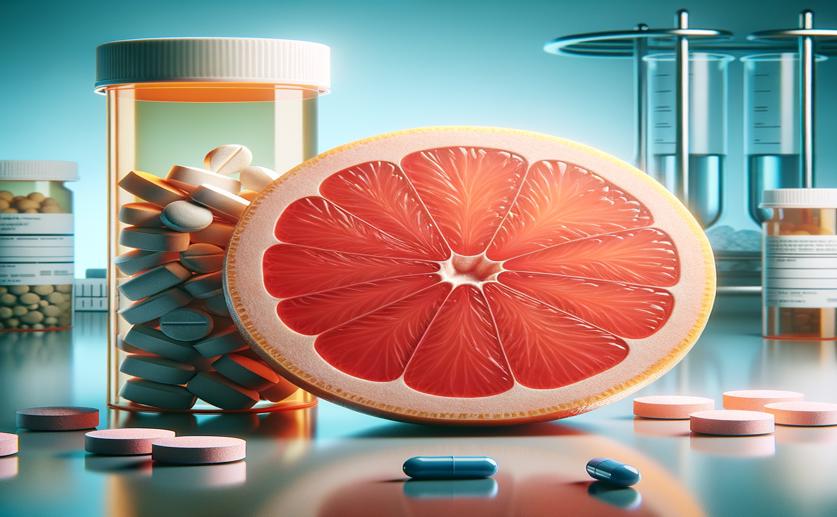
Grapefruit Juice and Mental Health Drugs: Updated Research and Cases
Greg Howard
10th May, 2024

Image Source: Natural Science News, 2024
Key Findings
- Study at Jagiellonian University found grapefruit juice can affect psychiatric drug metabolism
- Grapefruit juice mainly inhibits the CYP 3A4 enzyme, altering drug levels in the blood
- Researchers emphasize the need for healthcare professionals to consider diet's impact on medication
References
Main Study
1) Interactions between grapefruit juice and psychotropic medications: an update of the literature and an original case series.
Published 9th May, 2024
https://doi.org/10.1080/17425255.2024.2352468
Related Studies
2) Adverse drug reactions in hospitalized psychiatric patients.
3) An approach to evaluating drug-nutrient interactions.
Journal: Pharmacotherapy, Issue: Vol 25, Issue 12, Dec 2005
4) Harder, better, faster, stronger? Retrospective chart review of adverse events of interactions between adaptogens and antidepressant drugs.



 6th February, 2024 | David Palenski
6th February, 2024 | David Palenski